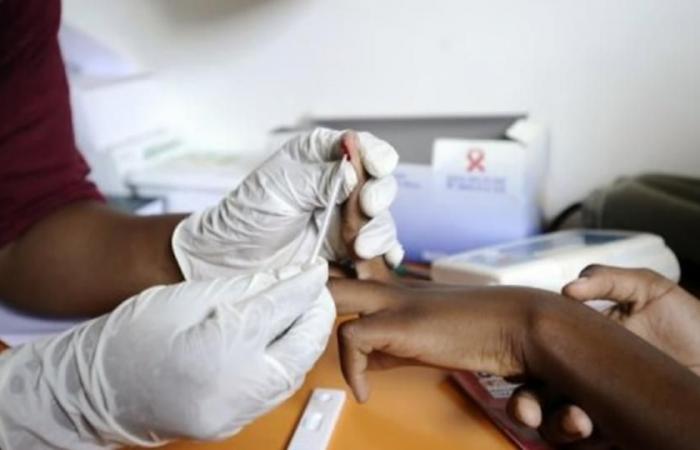This is what the results of the General Directorate for AIDS Prevention (DGPS) reveal to us in collaboration with the Outpatient Treatment Center (CTA) of Tchibanga and the Provincial Committee for the Fight against Sexually Transmitted Infections (STI) of the Nyanga, in the daily Union of this Thursday, January 2, 2024. It appears that during the HIV/AIDS screening campaign, 17 new cases tested positive, out of 685 people registered.
Gabon is resolutely committed to fighting HIV/AIDS. It is with this in mind that during the month of December dedicated to this cause, several activities were carried out across the country. It appears that for the year 2024, in the towns of Mayumba and Tchibanga, a total of 685 people took part in voluntary HIV/AIDS testing. All of which allowed the team from the General Directorate of AIDS Prevention to discover 17 new HIV-positive cases.
Figures calling for vigilance
According to the Director General of Statistics and Studies, the 17 new HIV-positive cases recorded are mainly women. « among the 685 volunteers who took part in screening, 488 came from Tchibanga where 13 positive cases were detected. The others being in Basse Banio, i.e. 4 new HIV-positive cases » confided Diaba Mouissi Fernand in the columns of the Union. Faced with these alarming figures, the health authorities did not fail to express their wish to reduce the prevalence rate of HIV/AIDS in the province of Nyanga which since 2022 has been the province with the highest rate according to the Gabon’s demographic and health survey (EDS) for the year 2022.

A situation which depicts the lack of contraceptives and the lack of awareness among populations about this global scourge. To remedy this, teams from the health authorities distributed more than 25,000 condoms in the two localities. That is 7,500 condoms in Mayumba and 18,300 in Tchibanga. At the end of this screening caravan, local populations did not fail to express their gratitude for this salutary initiative and in line with the UN which wishes to eradicate this pandemic by 2030.
Josée Biloghe, trainee journalist










